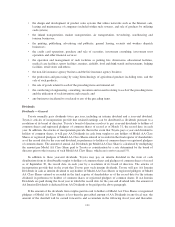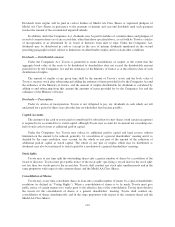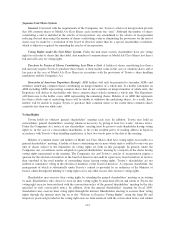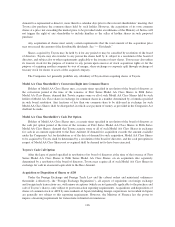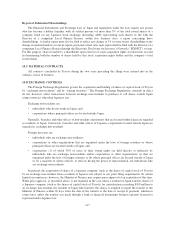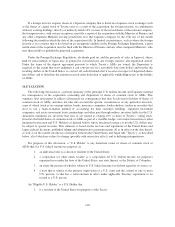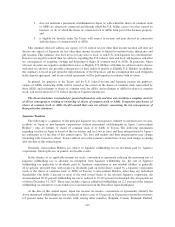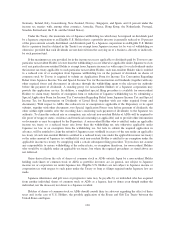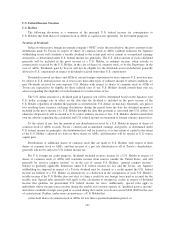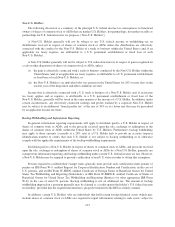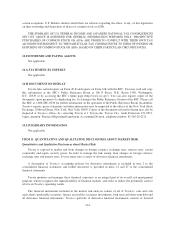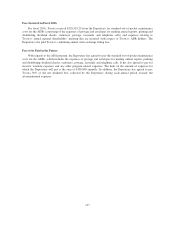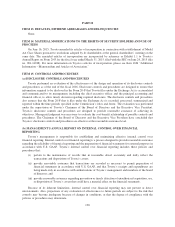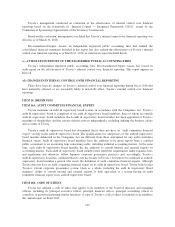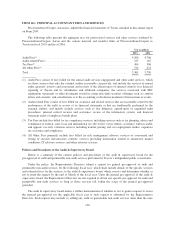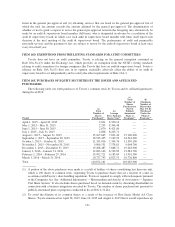Toyota 2015 Annual Report Download - page 126
Download and view the complete annual report
Please find page 126 of the 2015 Toyota annual report below. You can navigate through the pages in the report by either clicking on the pages listed below, or by using the keyword search tool below to find specific information within the annual report.U.S. Federal Income Taxation
U.S. Holders
The following discussion is a summary of the principal U.S. federal income tax consequences to
U.S. Holders that hold shares of common stock or ADSs as capital assets (generally, for investment purposes).
Taxation of Dividends
Subject to the passive foreign investment company (“PFIC”) rules discussed below, the gross amount of any
distribution made by Toyota in respect of shares of common stock or ADSs (without reduction for Japanese
withholding taxes) will constitute a taxable dividend to the extent paid out of current or accumulated earnings
and profits, as determined under U.S. federal income tax principles. The U.S. dollar amount of such a dividend
generally will be included in the gross income of a U.S. Holder, as ordinary income, when actually or
constructively received by the U.S. Holder, in the case of shares of common stock, or by the Depositary, in the
case of ADSs. Dividends paid by Toyota will not be eligible for the dividends-received deduction generally
allowed to U.S. corporations in respect of dividends received from other U.S. corporations.
Dividends received on shares and ADSs of certain foreign corporations by non-corporate U.S. investors may
be subject to U.S. federal income tax at lower rates than other types of ordinary income if certain conditions are
met. Dividends received by non-corporate U.S. Holders with respect to shares of common stock or ADSs of
Toyota are expected to be eligible for these reduced rates of tax. U.S. Holders should consult their own tax
advisors regarding the eligibility of such dividends for a reduced rate of tax.
The U.S. dollar amount of a dividend paid in Japanese yen will be determined based on the Japanese yen/
U.S. dollar exchange rate in effect on the date that the dividend is included in the gross income of the
U.S. Holder, regardless of whether the payment is converted into U.S. dollars on that date. Generally, any gain or
loss resulting from currency exchange fluctuations during the period from the date the dividend payment is
included in the gross income of a U.S. Holder through the date that payment is converted into U.S. dollars (or
otherwise disposed of) will be treated as U.S.-source ordinary income or loss. U.S. Holders should consult their
own tax advisors regarding the calculation and U.S. federal income tax treatment of foreign currency gain or loss.
To the extent, if any, that the amount of any distribution received by a U.S. Holder in respect of shares of
common stock or ADSs exceeds Toyota’s current and accumulated earnings and profits, as determined under
U.S. federal income tax principles, the distribution first will be treated as a tax-free return of capital to the extent
of the U.S. Holder’s adjusted tax basis in those shares or ADSs, and thereafter will be treated as U.S.-source
capital gain.
Distributions of additional shares of common stock that are made to U.S. Holders with respect to their
shares of common stock or ADSs, and that are part of a pro rata distribution to all of Toyota’s shareholders,
generally will not be subject to U.S. federal income tax.
For U.S. foreign tax credit purposes, dividends included in gross income by a U.S. Holder in respect of
shares of common stock or ADSs will constitute income from sources outside the United States, and will
generally be “passive category income” or, in the case of certain U.S. Holders, “general category income.”
Subject to generally applicable limitations under U.S. federal income tax law and the Treaty, any Japanese
withholding tax imposed in respect of a Toyota dividend may be claimed as a credit against the U.S. federal
income tax liability of a U.S. Holder, or alternatively as a deduction in the computation of such U.S. Holder’s
taxable income if the U.S. Holder does not elect to claim a credit for any foreign taxes paid or accrued for the
taxable year. Special rules generally will apply to the calculation of foreign tax credits in respect of dividend
income that qualifies for preferential U.S. federal income tax rates. Additionally, special rules apply to
individuals whose foreign source income during the taxable year consists entirely of “qualified passive income”
and whose creditable foreign taxes paid or accrued during the taxable year do not exceed $300 ($600 in the case
of a joint return). Further, under some circumstances, a U.S. Holder that:
(i) has held shares of common stock or ADSs for less than a specified minimum period; or
121


